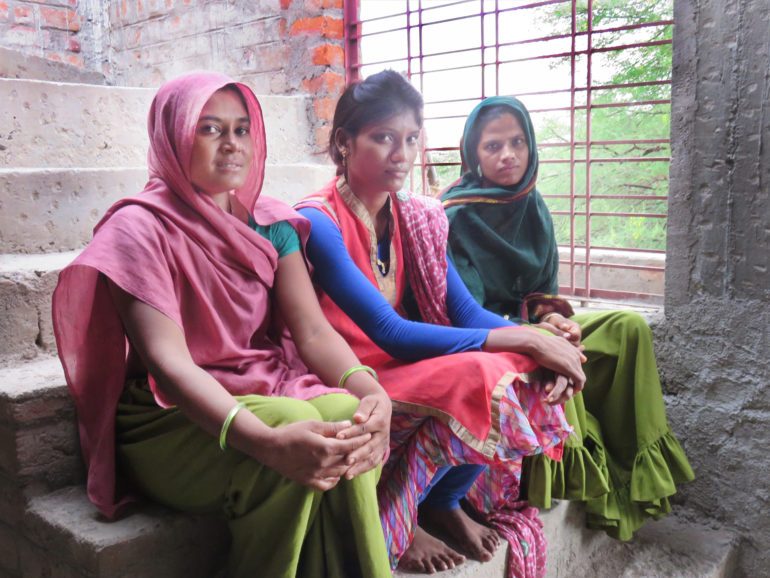
Most of the 200 million Christians globally under pressure for their faith don’t experience violence but a ‘daily squeeze’ which is more insidious and – if left unchallenged – can lead to violence, MPs and others heard yesterday (17 January) at the launch of Open Doors’ World Watch List 2018 in the UK Parliament.
Religious persecution around the world is growing both in scale and severity, Open Doors’ CEO Lisa Pearce said during the presentation of the report ‘Death by a thousand cuts: The rise of non-violent persecution as a tool of oppression’.
According to the report, the most dangerous countries to live in as a Christian are also those which are ‘specialists’ in ‘the squeeze’: the pressures a Christian experiences in their day-to-day life – from education and work to family life – from cradle to grave. These countries use a variety of tools including surveillance, arrests, discrimination and unjust laws, to grind down the Christian community in the hope Christians will disappear. When this pressure is used effectively, it can be more insidious than violence, Open Doors says.
Challenges
Hannah from Pakistan told the meeting about a 23-year old Christian, a promising writer, who was completing her degree: “When she handed in his dissertation her supervisor asked why she was so interested in minority rights and especially those of the ‘sweeper Christians’ (the Christian ‘untouchables’) When she answered that this was because she was one of them, the supervisor suggested she would change the text of a certain chapter or the supervisor would interpret it as blasphemy”. For one week she was afraid she would have to leave.
Another (medical) student did not receive a promised reward for his work in rural, poor areas but instead faces relentless discrimination in the hospital where he now works: he has to drink from a different cup to his colleagues and eat in a different room. All because “there was the rumour that his father had decided to follow a religion of his own choice and had become a Christian”, Hannah says.
Young graduates in Egypt face challenges as well because of their faith, Michael from Cairo added, in his speech. They have little chance of finding a job because they are Christian: “Their CVs are shredded, as are their dreams and hopes”. His own father worked in the public sector for 30 years but was never allowed to become head of his department.
He also knows of a sandwich chain that openly advertises on the front of their shops that they do not employ Christians.
Women and children
Young women are particularly vulnerable because of their gender and their Christian faith, Open Doors USA CEO David Curry said earlier: “Christians in these [hostile] communities are overwhelmed, and—in areas where extremists wield power—police forces and governments can’t be relied upon to protect individual Christian women in these communities.”
Michael knows the stories of how in Egypt “a girl is kidnapped and after many months the family will hear news from her, namely that she has converted to Islam. But not of her own choice. She was forced to marry a Muslim man”.
Children are feeling the ‘squeeze’ in school where they are mistreated by teachers. UK MPs heard how nine-year old Mina came home one evening and went up to his bedroom where he tore apart his Bible, saying “Why can’t I be a Muslim? It is so much easier to be like other children in my class”.
A lot of the ‘squeeze’ is fuelled by the trend of growing ‘religious nationalism’ where ethnic and national identity is defined by one ‘acceptable’ religion, according to the Open Doors report. This creates an environment of impunity in countries like India, Myanmar and Nepal. In India alone, 635 Christians are known to have been detained without trial, or unfairly arrested and imprisoned, in the last 12 months.
Article 18
The pressure on freedom of religion or belief, left unchallenged, can turn into violent persecution for both Christians and those of other religious minorities and of no faith too. Lisa Pearce said Western governments continue to chronically underestimate the pressure religious freedom is under around the world, and the importance it has.
The parliamentarians were told that the upcoming meeting of the Commonwealth heads of government in London in April is an opportunity to address this issue. Eight of the 50 countries on the World Watch List where it is most difficult to live as a Christian are members of the Commonwealth: Bangladesh, Brunei, India, Kenya, Malaysia, the Maldives, Pakistan and Sri Lanka.
